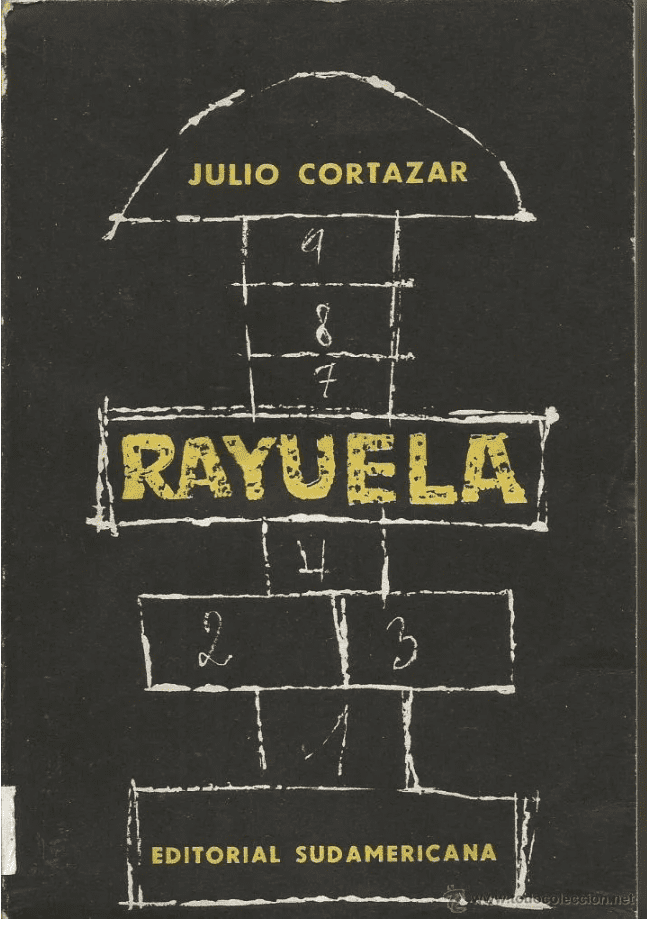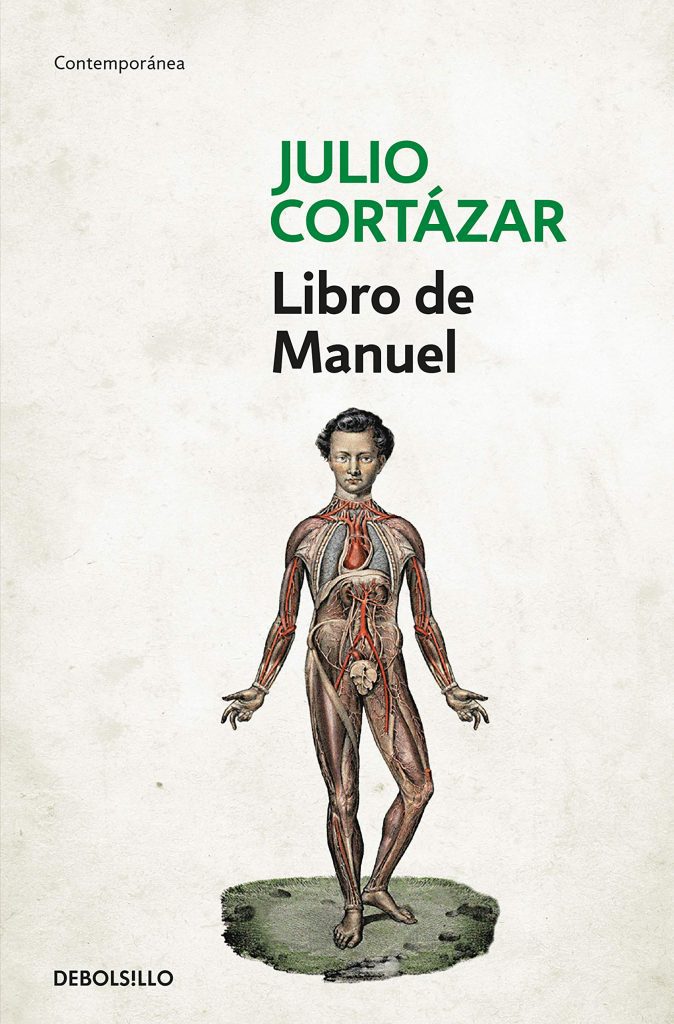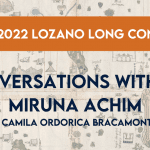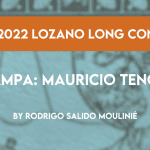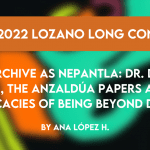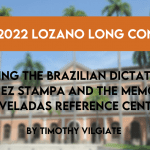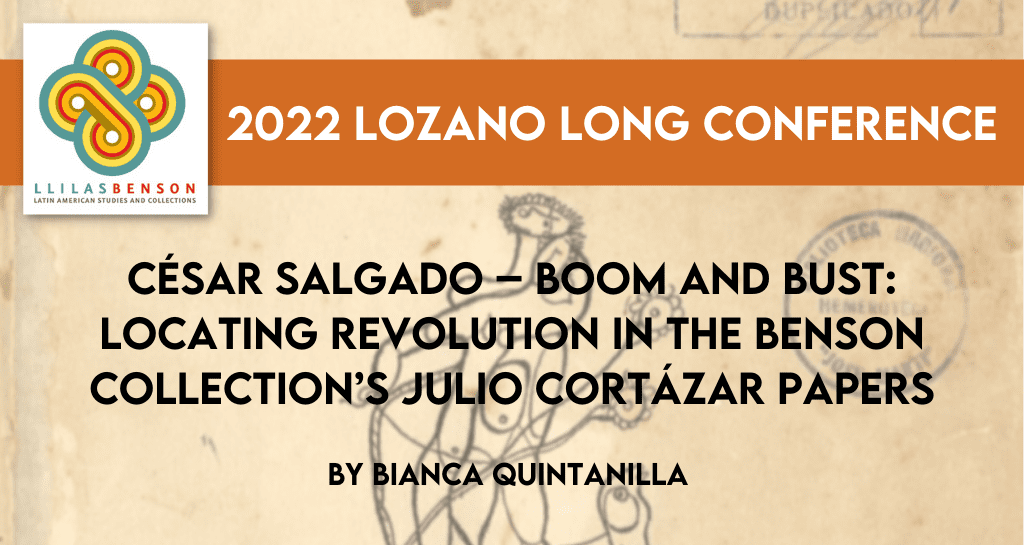
by Bianca Quintanilla
In honor of the centennial of the Nettie Lee Benson Latin American Collection, the 2022 Lozano Long Conference focuses on archives with Latin American perspectives in order to better visualize the ethical and political implications of archival practices globally. The conference was held in February 2022 and the videos of all the presentation will be available soon. Thinking archivally in a time of COVID-19 has also given us an unexpected opportunity to re-imagine the international academic conference. This Not Even Past publication joins those by other graduate students at the University of Texas at Austin. The series as a whole is designed to engage with the work of individual speakers as well as to present valuable resources that will supplement the conference’s recorded presentations. This new conference model, which will make online resources freely and permanently available, seeks to reach audiences beyond conference attendees in the hopes of decolonizing and democratizing access to the production of knowledge. The conference recordings and connected articles can be found here.
En el marco del homenaje al centenario de la Nettie Lee Benson Latin American Collection, la Conferencia Lozano Long 2022 propició un espacio de reflexión sobre archivos latinoamericanos desde un pensamiento latinoamericano con el propósito de entender y conocer las contribuciones de la región a las prácticas archivísticas globales, así como las responsabilidades éticas y políticas que esto implica. Pensar en términos de archivística en tiempos de COVID-19 también nos brindó la imprevista oportunidad de re-imaginar la forma en la que se llevan a cabo conferencias académicas internacionales. Como parte de esta propuesta, esta publicación de Not Even Past se junta a las otras de la serie escritas por estudiantes de posgrado en la Universidad de Texas en Austin. En ellas los estudiantes resaltan el trabajo de las y los panelistas invitados a la conferencia con el objetivo de socializar el material y así descolonizar y democratizar el acceso a la producción de conocimiento. La conferencia tuvo lugar en febrero de 2022 pero todas las presentaciones, así como las grabaciones de los paneles están archivados en YouTube de forma permanente y pronto estarán disponibles las traducciones al inglés y español respectivamente. Las grabaciones de la conferencia y los artículos relacionados se pueden encontrar aquí.
“Es asombroso,” exclaimed Dr. Salgado when introducing José Lezama Lima’s work in his 2019 New World Baroque Genealogies graduate seminar. Any junior scholar who is lucky enough to take a class with Salgado knows that he brings passion, encyclopedic knowledge, and a trenchant wit to the materials he researches and teaches. Dr. Salgado will participate in the panel “Histories of Collecting and Collecting Stories,” where he will present “Boom and Bust: Locating Revolution in the Benson Collection’s Julio Cortázar Papers.”
There Dr. Salgado will apply a genetic approach, one that, he explained, examines manuscripts for clues about the author’s aesthetic and writing politics, especially in the case of canonical texts. Salgado will refer to Julio Cortázar’s Rayuela (1963) as an inaugural moment for the field of genetic criticism in Latin America, and to the unpublished “log book” of Cortázar’s last novel Libro de Manuel (1973) as a route map of his turn to revolutionary commitment.
Dr. Salgado is a professor in the Department of Spanish and Portuguese at the University of Texas at Austin and is also a member of the core faculty for the Program in Comparative Literature. He joined UT in 1993 after having earned his Ph.D. in Comparative Literature at Yale University. Given his dual roles, Salgado offers a broad range of courses, from Comparative Joyce studies, New World Baroque literature and art, and Caribbean archival and intellectual history, to literary theory spanning from Greek antiquity to the present day.
Salgado’s presentation on Cortázar’s literary manuscripts is one strand in his longstanding interest in archival formations and politics. His monograph From Modernism to Neobaroque: Joyce and Lezama Lima (2001) “examines the historical and intertextual relationship between the ‘difficult’ aesthetics of European modernism and contemporary neobaroque Latin American literature” by comparing the major works by James Joyce and José Lezama Lima. Salgado’s work draws from an extensive body of literary history, including the readings of Joyce by critics Borges, Pound, Eliot, and Stuart Gilbert, to Lezama’s Lima’s analysis of Joyce. To examine Joycean themes in Lezama Lima’s work, he turned to archival resources at Fondo Lezama Lima in Centro Havana, Cuba. With this comparative analysis of Joycean and Lezama Liman literary and cultural history, Salgado “[r]evis[es] concepts such as influence, imitation, and appropriation.” The political outcome of his approach is a decentering of Anglo-centric notions of a European modernism in favor of a “postcolonial ‘world’ aesthetic.” In an article forthcoming this year, “Gifts of Joyce in Cuba’s Grupo Orígenes” Salgado argues that future Lezama Lima/Joyce comparative studies will hinge on how Joyce scholars acknowledge the debt their “industry” owns Lezama Lima for reintroducing the Irish writer to Caribbean and Latin American readers in his journals and essays.

It is only fitting that a monograph centering on two highly experimental works of fiction has generated additional fruitful scholarly collaborations. Salgado’s former students in his Joyce seminar, Brian Price and John Pedro Schwartz, contacted him about a gap on scholarship on Joyce’s diffusion. They joined forces as co-editors in a project that resulted in the publication of TransLatin Joyce: Global Transmissions in Ibero American Literature (2014). Salgado has also co-edited a number of scholarly and reference volumes: La futuridad del naufragio: Orígenes, estelas y derivas (2019); Cuba (2011); La tumba de Buenaventura Roig: Selected Poems/Poemas selectos de Martín Espada (2008); and Latino and Latina Writers (2004). As one of Dr. Salgado’s mentees, I’ve benefitted from his comparative approach to Latin American literature and Western theory. My current project focuses on the 17th– century Mexican nun Sor Juana Inés de la Cruz as a theorist of allegorical poetics. It first emerged from Dr. Salgado’s fall 2019 seminar New World Baroque Genealogies.
Salgado’s research on Lezama Lima has taken an even more expansive trajectory, situating him within the Hispanic literary tradition of the baroque. The baroque was a contested period of extravagant artistic expression in Europe and the New World, beginning in the 16th century and ending around the 18th century. Salgado’s theoretical and literary study “Hybridity in New World Baroque Theory” invokes José Lezama Lima, and 20th-century Cuban writers Alejo Carpentier and Severo Sarduy, in which he considers how these three artists formulated “neobaroque” elements to posit new literary models of resistance.
Salgado complements his highly theoretical work in global literary traditions with an ongoing effort to build communities across departments. In early fall 2021, Dr. Salgado curated for LLILAS Benson the film series Screening Scribes: Four Films on Cuban Writers, featuring documentaries that “upgraded breakthroughs in the cinematic grammar of Cuban filmmaking to convey the creative signatures, intellectual orbits, and affective worlds of three of the most consequential polymaths in Cuba’s arts and letters.” Following each screening, Salgado hosted a conversatorio with the documentarian. More recently, he co-organized for LLILAS Benson in collaboration with colleagues from Colegio de Mexico the international online colloquium “Nombrar las cosas: Eliseo Diego y su legado,” a two-day event in November 2021 honoring the Cuban poet and public intellectual. With Lezama Lima, Diego co-founded Orígenes, a prominent Latin American literature, art, and philosophy journal in print from 1944 to 1956. The event also celebrated the 2019 acquisition of Diego’s archives, which Salgado helped secure in 2019.
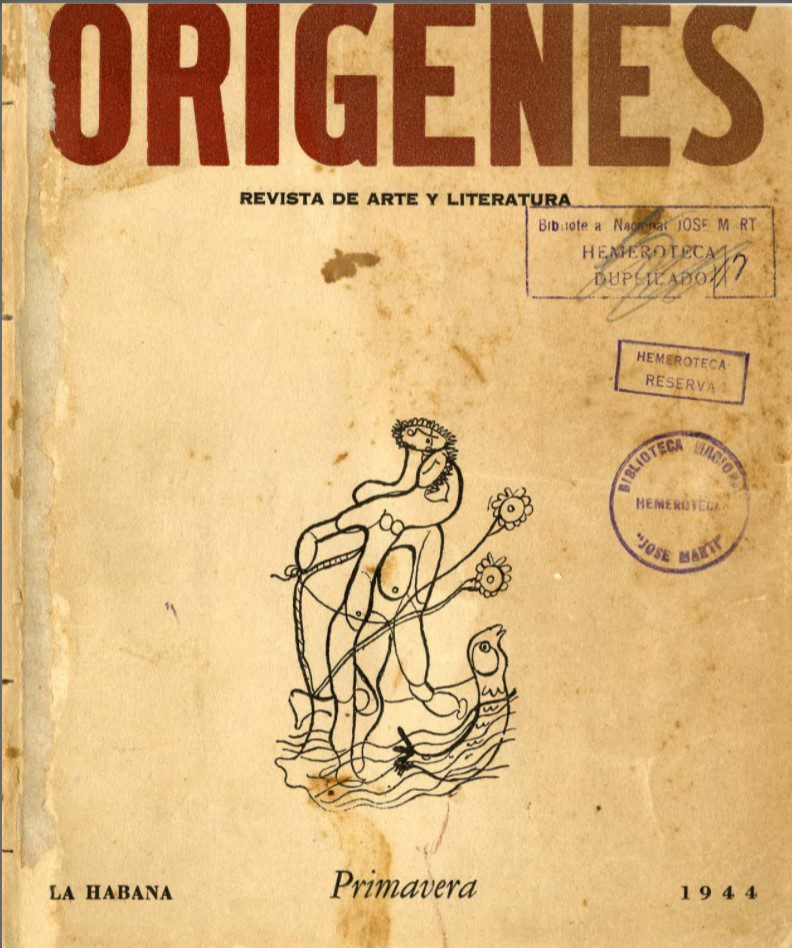
Salgado’s current project in archival studies Unsovereign Custodies: Archival Fashioners in Colonial Puerto Rico, 1852-1952 brings him close to home—his native island. In the manuscript he tracks six custodians of Puerto Rican culture. Each archivist and curator of print, visual, and archaeological culture negotiated either Spanish or United States colonial rule to fashion anti-colonial archives. Salgado’s contribution to Puerto Rican culture is sorely needed because the debt crisis and the devastation of Hurricane María have rendered the island’s archives increasingly vulnerable. His discussion on the exacerbation of the precarity of Puerto Rico’s archives draws from a project funded by a 2018 Mellon grant in which he inspected and documented some of the Commonwealth’s archives post hurricane María.
The guiding ambition of Unsovereign Custodies concerns literature’s relationship to the wider world. According to Salgado, literature cannot be disengaged from social change because it is where change is first imagined. The author of the central text in Salgado’s conference presentation, Julio Cortázar, was an Argentinian writer who left for France in protest of Peronist politics in 1951, but then developed an unwavering alliance to the Latin American left after declaring his support of the Cuban Revolution. If the reader is interested in getting more acquainted with Dr. Salgado’s research on experimental literature and revolutionary politics, attending the conference would be the perfect opportunity.
Bianca Quintanilla is a fourth-year PhD student in the Comparative Literature Program at the University of Texas at Austin. She studies paradigms of knowledge in Chicana literature, intersectional feminism, and critical Latinx indigenous studies. She hails from Harlingen, Texas, where she enjoys eating tamales and hot chocolate with her family.
The views and opinions expressed in this article or video are those of the individual author(s) or presenter(s) and do not necessarily reflect the policy or views of the editors at Not Even Past, the UT Department of History, the University of Texas at Austin, or the UT System Board of Regents. Not Even Past is an online public history magazine rather than a peer-reviewed academic journal. While we make efforts to ensure that factual information in articles was obtained from reliable sources, Not Even Past is not responsible for any errors or omissions.
